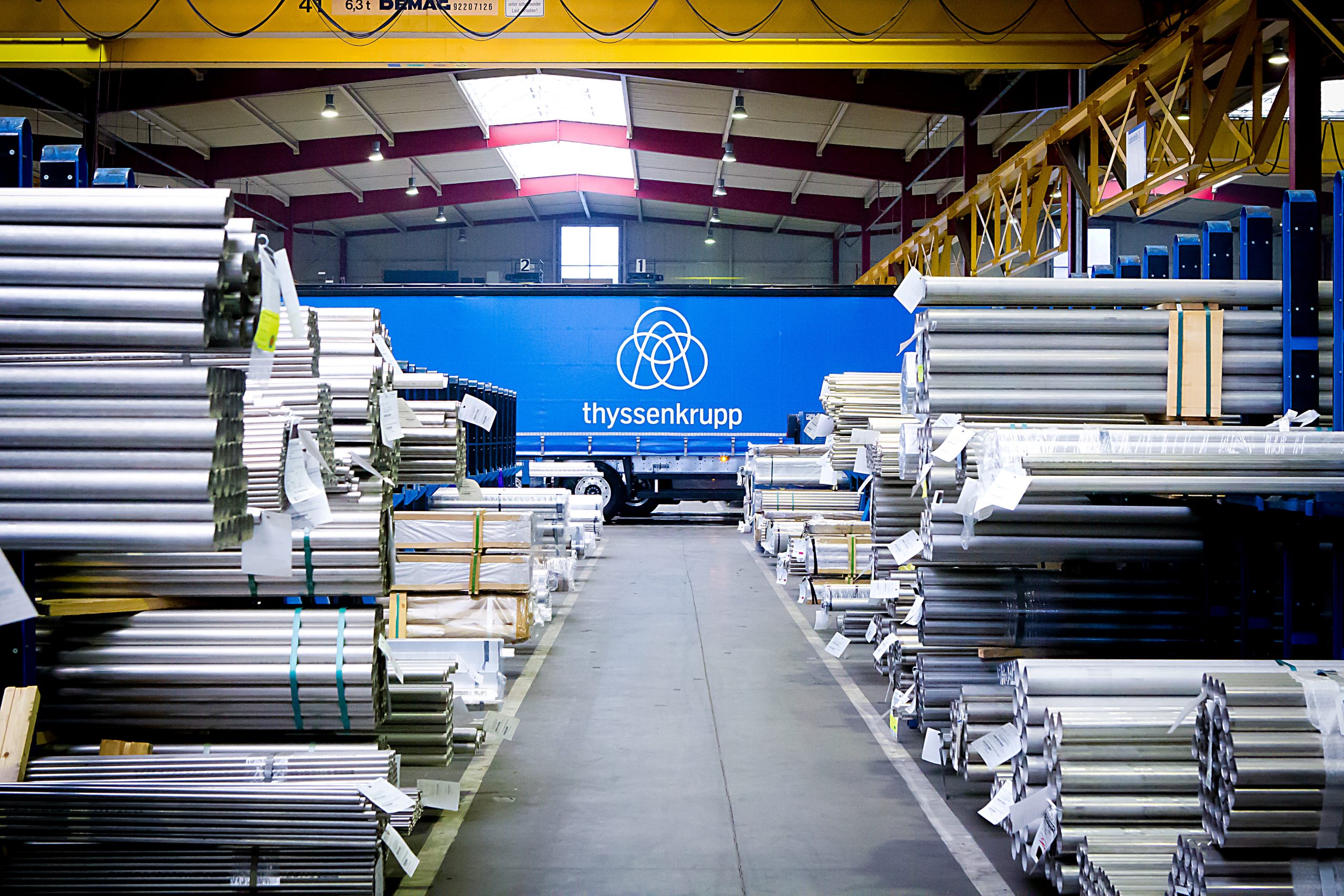The construction of a steel scrap processing plant by TSR Recycling GmbH at Duisburg, Germany, broke ground April 21, with the facility set to produce high-quality recycled raw material to be used in thyssenkruup’s local blast furnaces, the steelmaker said.
The use of recycled products in the blast furnace would lead to a reduction of CO2 intensity and support the production of thyssenkrupp’s bluemint steel range of CO2-reduced and certified steel, the company said. Once the plant is completed, up to 260,000 mt of bluemint recycled steel could be produced per year, it added.
“This project enables us to make rapid progress in the reduction of CO2 emissions,” thyssenkrupp Steel’s chief technology officer Arnd Köfler said in a statement following a ground breaking ceremony at the Schrottinsel, or Scrap Island, site at the inland port of Duisberg, which stands at the junction of the Rhine and Ruhr rivers. “Aside from the long-term transformation of our plant and equipment to hydrogen-based direct reduction, we are already doing everything possible to avoid CO2 in the conventional blast furnace process as well. The use of scrap-based recyled material in the blast furnace is an important step in this direction which also benefits our customers.“
The new processing plant meets the special material properties of the high-quality recycled product (TSR40) required for thyssenkrupp’s Duisburg furnaces through the use of special shredder and separation technology.
“Apart from the positive effects for environmental protection and resource conservation, the construction of the new plant and the novel product are also representative of sustainable and reliable raw material supply in Germany and Europe,” Bernd Fleschenberg, TSR’s Managing Director, said. “TSR40 enables us to cover a large part of future raw material requirements of the industry. Particularly in view of interrupted supply chains, our plant at the Duisburg location is a lighthouse project that can serve as a model for other material flows.”
The processing plant is part of the REDERS project (reduced CO2-emissions through increased recycling quota in the steelmaking process) funded by the state of North Rhine-Westphalia to the tune of Eur6.4 million ($7 million). The project partners in the initiative are TSR, thyssenkrupp Steel, Hüttenwerke Krupp Mannesmann GmbH and VDEh Betriebsforschungsinstitut.
In Northern Europe, S&P Global Commodity Insights’ April assessment for domestic shredded scrap was at a record high of Eur570/mt delivered April 11, up sharply from Eur525/mt in March. Shredded scrap prices have risen sharply since 2022, as steel demand recovered following the initial stage of the coronavirus pandemic, with increasing interest in low-carbon steel prompting stronger interest in scrap-based steel production.
— Annalisa Villa, Viral Shah






